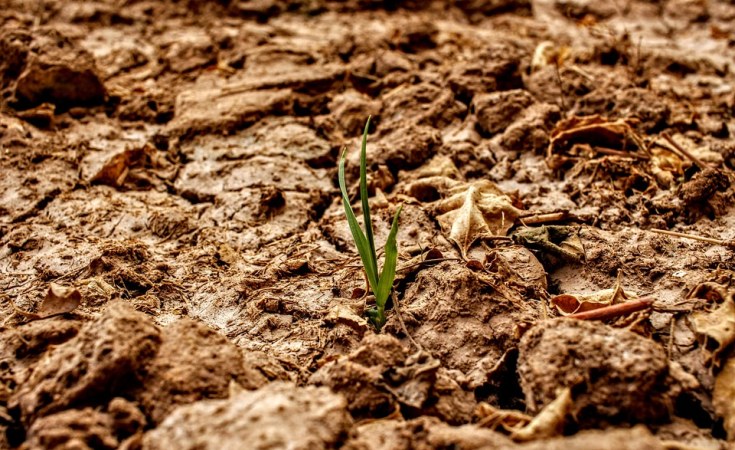In a coalition for climate justice, ActionAid Rwanda (AAR) has joined hands with the ActionAid Federation to spearhead the Climate Justice Campaign with a theme 'FUND OUR FUTURE"
This collaboration started early this year and Monday, September 4, marked the beginning of a concerted effort to promote equitable investments in climate resilience.
The campaign is set to extend for three years.
ActionAid Rwanda's extensive interventions have been carried out across various Districts of Rwanda, namely Musanze, Karongi, Nyanza, Gisagara, and Nyaruguru, where Rights Holders share a national commitment to safeguarding the planet.
ActionAid Rwanda has been at the forefront of advocating for combating the effects of climate change by working with Rights Holders and other partners to implement impactful initiatives aimed at building resilience and ensuring environmental sustainability.
"Our work encompasses promoting community-led advocacy initiatives that include agroecology practices, climate-smart agriculture, afforestation efforts to mitigate carbon emissions, energy-saving cooking stoves, and educational campaigns focused on climate change adaptation and mitigation practices. Through these dedicated endeavors, ActionAid Rwanda has been empowering local communities to confront climate change head-on and nurture a more sustainable and resilient future for all," reads part of the statement.
The statement says that a pivotal aspect of ActionAid's initiative in its areas of intervention is the emphasis on promoting climate change adaptation and mitigation measures.
ActionAid Rwanda recognizes that climate change disproportionately affects vulnerable communities, especially women and girls. ActionAid is committed to promoting adaptive capacities that advance equity and justice.
The interventions are in line with government's green growth vision.
The Rwandan government has displayed a strong commitment to climate action by unveiling an ambitious agenda. This agenda commits to reducing greenhouse gas emissions by 38% compared to business as usual by 2030, which equates to an estimated mitigation of up to 4.6 million tons of carbon emissions.
While such a commitment demonstrates dedication to combating climate change, a recent report from ActionAid International titled "How the Finance Flows: The Banks Fueling the Climate Crisis" sheds light on the significant role major international banks play in financing activities that perpetuate the climate crisis.
Notably, these banks have been funding fossil fuels and industrial agriculture in the Global South, both major contributors to climate change.
The findings of this report are stark.
Since the Paris Agreement in 2015, banks have injected a staggering $3.23 trillion into financing fossil fuel operations in the Global South, comprising almost US$870 billion in loans and US$2.4 billion in underwriting. Furthermore, these institutions have allocated $1.1 trillion toward financing industrial agriculture in the Global South, exacerbating the climate crisis and disproportionately affecting vulnerable communities in these regions.
Hence, the message from ActionAid Climate Justice Campaign is unequivocal.
" Banks must immediately cease financing fossil fuels and industrial agriculture, redirecting their resources toward sustainable solutions. The global community cannot idly tolerate the role of financial institutions in environmental degradation; so, it is imperative that they shoulder their responsibility in the fight against climate change," says the message.
Moreover, the report underscores the role of public finance in perpetuating these issues. Governments in the Global South have channeled $1.4 trillion in subsidies to fossil fuels and $500 billion to industrial agriculture. This gross misallocation of public funds must cease, with governments redirecting these subsidies toward sustainable solutions that benefit both the environment and their citizens.
Funding fossil fuel and industrial agriculture intensifies climate change by emitting greenhouse gases, causing climate-related hazards warming, and triggering severe environmental consequences like extreme weather, rising sea levels, and ecosystem disruptions.
Industrial agriculture exacerbates the climate change issue through deforestation, excessive water use, carbon dioxide and methane emissions, and soil and water pollution from synthetic inputs.
"Transitioning to renewable energy and sustainable farming practices is crucial to address these challenges and ensure a healthier, more sustainable future for the planet," ActionAid recommends.
Amidst these challenges, ActionAid Rwanda continues to promote and pursue innovative solutions to mitigate climate risks like commitment to renewable energy sources, including hydroelectric power, solar energy, methane gas, etc.
Simultaneously, ActionAid Rwanda advocates for agroecology to promote sustainable agricultural practices that prioritize soil health, organic farming, and biodiversity preservation as well as reforestation initiatives to improve carbon sequestration capacity, establishing carbon sinks that offset emissions, among others.
During the Africa Heads of States Summit on Climate Change in Nairobi held from September 4 to 6, 2023, leaders underscored the critical need for a global partnership to combat climate change.
Recognizing the interconnectedness of this issue that transcends borders, the summit underscored the importance of collaborative efforts among nations to mitigate the impacts of climate change and secure a sustainable future for the African continent and the world.
Beyond these commitments, and adding to ActionAid advocacy efforts there is a pressing need for a global movement to reallocate financial resources from harmful activities to sustainable solutions.
This movement is essential not only for advocating for addressing the climate crisis but also for building a more just and equitable future. By advocating for change collectively and holding financial institutions and governments accountable, we can usher in a new era of climate justice and environmental responsibility.
ActionAid urges major international banks to cease financing fossil fuels and industrial agriculture in the Global South as it exacerbates the climate crisis and disproportionately harms vulnerable communities. We call on Governments in the Global South to redirect subsidies away from harmful industries and toward sustainable solutions.
"Join us in this vital endeavor! Climate change threatens human rights globally by disrupting access to essentials like clean water and food, especially for marginalized communities. It worsens inequalities, particularly affecting disadvantaged populations, endangering rights to life, health, and livelihoods, and even undermining political stability," ActionAid calls.


